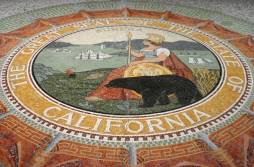Will Massachusetts’ new governor be good for tech?
As Charlie Baker was sworn in as the new governor of Massachusetts last Thursday, he also took the helm of one of the nation’s leading states for technological innovation. How much effort he plans to invest in maintaining that position, though, remains an open question.
In anticipation of Baker’s inauguration, the Boston Globe looked at the potential winners and losers under Baker’s new administration and put the technology sector somewhere in the middle.
“Baker’s desire to bring more technology into state government bodes well for the IT sector, and no one expects Baker would push for something as harebrained as the infamous ‘tech tax’ that earned Patrick a black mark among the geek set,” the paper wrote. “But here’s a bummer for many startups: He’s not going to be as passionate about banning noncompete agreements as Patrick was.”
The “tech tax” created a big stir in the state last year and a seemingly self-induced wound for Patrick. First proposed in February, the bill would add a specific tax on computer and software design services in the state, a move that technology advocates believed would ultimately move work out of the state.
After a large public outcry from the technology sector, Patrick vetoed the bill when it reached his desk later in the year. The bill still got enough support to take effect and caused Patrick to seek a repeal and replacement of the funds, which he succeeded in doing at the end of the year.
The paper said Baker, a former state secretary for Health and Human Services, and Administration and Finance, views noncompete agreements for startup companies differently than Patrick did.
“Baker favors putting some controls on noncompetes, such as those included in a compromise bill that never made it into law last year,” the Globe wrote. “But Baker sees the issue as a nuanced one, while it seemed to be black and white for Patrick.”
That is a potentially big issue as Massachusetts is home to one of the nation’s top technology hubs fueled by the area’s rich educational resources, in particular the Massachusetts Institute of Technology and Harvard University.
By not banning the noncompetes, Baker may make it tougher for the state’s emerging companies to lure talent into their doors. Some think highly qualified workers will see noncompete agreements as career limiting – and won’t want to work for companies that require them.
The paper also mentioned the state’s biotech industry, which is the strongest in the nation if not the world. It said that Patrick, who served as governor since 2007, bent over backwards for the industry to make sure it continued to prosper.
“Baker is not going to want to mess with that success,” the paper said. “But Baker responds cautiously when he is asked about the wisdom of throwing more subsidies in biotech’s direction.”
Between his stint in state government in the late 1990s and his election as governor, Baker spent time in the health care sector, serving as CEO of Harvard Vanguard Medical Associates and later Harvard Pilgrim Health Care, a nonprofit health benefits company.
The belief among business leaders in the state is that, after serving as a chief executive, Baker is one of them and will work to support them. As for whether that goes for technology as well, the state will have to wait and see.






